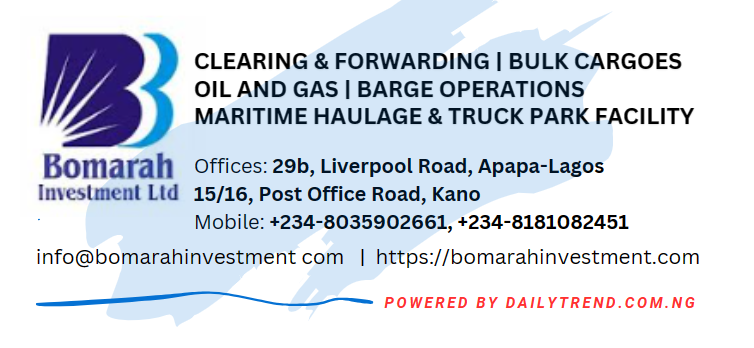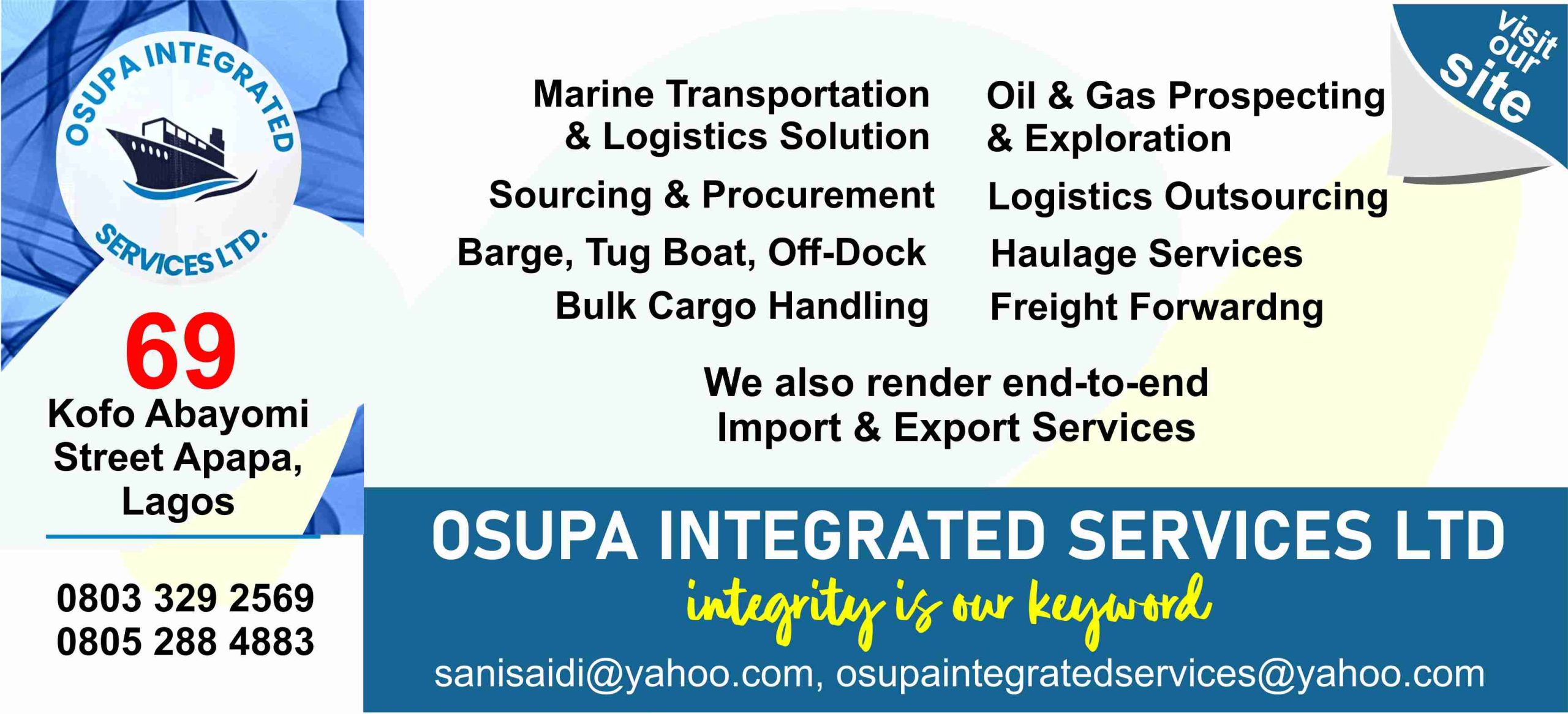$1.5 Trillion Blue Economy Sector: Oyetola Woos Maritime Stakeholders for Investment

Minister Adegboyega Oyetola
By DAPO OLAWUNI
The Minister of Marine and Blue Economy, Adegboyega Oyetola, has issued an urgent call for substantial private sector investment to transform the country’s newly approved National Policy on Marine and Blue Economy from ambitious policy framework into measurable economic impact.
The minister’s declaration comes as Nigeria seeks to unlock its share of the global blue economy, valued at $1.5 trillion and growing rapidly across maritime nations worldwide.
Speaking at a high-level stakeholder engagement forum at Eko Hotel and Suites in Lagos on Thursday, themed “From Policy to Impact,” Minister Oyetola emphasized that government funding alone cannot harness Nigeria’s vast marine resources for sustainable economic growth, job creation, and environmental protection.
The stakeholders forum highlighted Nigeria’s strategic push toward Public-Private Partnerships and innovative financing mechanisms to capitalize on the sector’s enormous potential.
The Minister stated that the Federal Executive Council’s landmark approval of the National Policy on Marine and Blue Economy on May 5, 2025, represents a pivotal moment in Nigeria’s economic diversification strategy.
This comprehensive policy framework according to him, encompasses critical maritime sectors including shipping and logistics, sustainable fisheries development, marine tourism expansion, coastal infrastructure modernization, and renewable ocean energy projects.
Speaking, he said “Vision without finance remains a dream and we intend to translate the policy into tangible results.
Government alone cannot shoulder the scale of investment required to strengthen maritime security, expand aquaculture and other coastal infrastructures, finance is a catalyst that turns policies into progress.
“At the Ministry, we have already demonstrated discipline, transparency and resolve, what we now request is the capital scale up”
The minister identified five priority investment areas where substantial financing remains indispensable for sustainable blue economy growth.
According to him, maritime security continues to demand significant investment in advanced surveillance technology, regional security partnerships, and modern patrol capabilities to maintain Nigeria’s impressive zero-piracy record in the Gulf of Guinea, a maritime security achievement directly attributed to strategic investments in the Deep Blue Project initiative.
“Port infrastructure modernization represents another critical investment frontier requiring substantial capital injection through strategic partnerships between public and private sectors, international development finance, and dedicated national budget allocations.
“The transformation of Nigeria’s ports with smart logistics systems, automated cargo handling, and modern terminal facilities will position the country as West Africa’s premier maritime gateway.
“Sustainable fisheries and aquaculture development demands competitive financing to expand fish farming operations, develop modern fish harbors, and establish efficient cold chain storage facilities across Nigeria’s coastal regions.
“These investments are crucial for combating illegal, unreported, and unregulated fishing activities while boosting domestic fish production and export potential”
In the area of Marine tourism development, Oyetola identified the Lagos-Calabar coastal highway as a key driver for marine tourism growth and coastal commerce expansion
“Under my leadership, the Ministry has demonstrated how financing translated into measurable results, as Nigeria has sustained zero incidents of piracy for over three years in the Gulf of Guinea, thanks to direct investments in the Deep Blue Project.
“We are embarking on modernisation of the Lagos ports to attract larger vessels, reduce vessel turnaround time, enhance competitiveness and create thousands of jobs.
Our interventions have so far supported Nigeria’s economic diversification, with non-oil exports rising by 13.6% in the first half of year 2025.
“The work of our technical department in agencies further demonstrates how finance translates into impact in notable progress in enhancing aquaculture, waterways safety ,empowering indigenous shipowners, expanding inland dry ports.
“Distinguished Stakeholders and partners, let us be clear that, the marine and blue economy sector is not solely to be funded by government, it is a shared prosperity, finance is what would deliver it in line with global standards” he said
In his welcome address, Dr. Olufemi Oloruntola, Permanent Secretary of the Ministry of Marine and Blue Economy, delivered a comprehensive presentation titled “The Imperatives of Open Investments for Marine and Marine-controlled Development.”
Dr. Oloruntola argued that while the national policy emphasizes private sector leadership, strategic public investment remains essential to catalyze broader sectoral transformation and attract additional private capital.
He acknowledged the current reality of limited national budget allocations, describing available government funding as merely a fraction of what is required to comprehensively modernize port facilities, secure extensive waterways, and promote sustainable marine tourism development.
He emphasized the urgent need for innovative financing mechanisms to bridge this substantial investment gap, warning that Nigeria risks losing its regional competitive advantage without immediate and coordinated investment action.
Speaking, he said “Public resources alone cannot carry the weight of the marine and blue economy. The private sector, when increased and well-coordinated and incentivized by public investments, will be central to achieving the scale of advance Nigeria would ever need.
At the same time, government support to improve budgetary allocations remains indispensable.
Even the most innovative financing tools and private investments require a solid public funding base to thrive.
“We therefore call on the relevant authorities, most especially the National Assembly, to prioritize the marine and blue economy as a top and key institution to enhance the delivery of new, great jobs and strengthen national resilience”
The stakeholders engagement had in attendance heavyweights from the Nigerian Maritime sector, including presentations from shipowners, fishing stakeholders, investment professionals, freight forwarders, boat builders among others.







